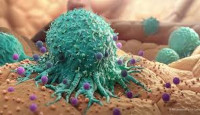Toxicity Evaluation with Brine Shrimp Lethality Test and Phytochemical Analysis of Some Indonesian Plant Extracts As Potential Anti-Colon Cancer Agents
DOI:
https://doi.org/10.26538/tjnpr/v8i4.16Keywords:
Extract, colon cancer, Brine Shrimp Lethality Test, Phytochemical analysisAbstract
Garlic (Allium sativum), red ginger (Zingiber officinale), turmeric (Curcuma longa), tea (Camellia
sinensis), tomato (Solanum lycopersicum), bitter melon (Momordica charantia), pearl grass
(Hedyotis corymbosa (L.) Lamk.), soybean (Glycine max), grape (Vitis venifera) and Sambiloto
(Andrographis paniculata) were studied for their anticancer potential in colon cancer. Using a
combination of these plants as promising anticancer agents still requires further exploration from
the cultivation and formulation. This research was aimed at the phytochemical analysis and
evaluation of the anticancer potential of these plants in colon cancer. The Brine Shrimp Lethality
toxicity test using Artemia salina Leach larvae was used to determine the LC50 value of the plant
extracts. Two of the ten plants with the lowest LC50 values include turmeric and ginger, with
cytotoxicity values of 15.995 ppm and 3.488 ppm, respectively.
References
Matthews HK, Bertoli C, de Bruin RAM. Cell cycle control in cancer. Nat Rev Mol Cell Biol. 2022;23(1):74–88.
Hanahan D. Hallmarks of cancer: new dimensions. Cancer Discov. 2022;12(1):31–46
Ferlay J, Colombet M, Soerjomataram I, Parkin DM, Piñeros M, Znaor A, Bray, F. Cancer statistics for the year 2020: An overview. Int J Cancer. 2021;149(4):778–89.
Xu M, Peng R, Min Q, Hui S, Chen X, Yang G QS. Bisindole natural products: A vital source for the development of new anticancer drugs. Eur J Med Chem. 2022;5(243):114748.
Desai A, Scheckel C, Jensen CJ, Orme J, Williams C, Shah N, Leventakos K AA. Trends in Prices of Drugs Used to Treat Metastatic Non–Small Cell Lung Cancer in the US From 2015 to 2020. JAMA Netw Open. 2022;5(1):e2144923–e2144923.
Vyas S, Zaganjor E, Haigis MC. Mitochondria and Cancer. Cell. 2016;166(3):555–66.
Zhao N, C Woodle M, Mixson AJ. Advances in Delivery Systems for Doxorubicin. J Nanomed Nanotechnol. 2018;09(05):1–9.
Baptista Moreno Martin AC, Tomasin R, Luna-Dulcey L, Graminha AE, Araújo Naves M, Teles RHG, da Silva, V.D., da Silva, J.A., Vieira, P.C., Annabi, B. and Cominetti, M.R.. [10]-Gingerol improves doxorubicin anticancer activity and decreases its side effects in triple negative breast cancer models. Cell Oncol. 2020;43(5):915–29.
Ubhenin AE, Ikebuiro JO, Idris RI, Anura F, Erharuyi O. Exploring Mechanisms of Tumorigenesis and Plant-Based Therapies: A Comprehensive Review of Cancer Pathogenesis and Treatment Strategies. Trop J Nat Prod Res. 2023;7(11):5026–33.
Murphy N, Moreno V, Hughes DJ, Vodicka L, Vodicka P, Aglago EK, et al. Lifestyle and dietary environmental factors in colorectal cancer susceptibility. Mol Aspects Med. 2019;69(6):2–9.
Keum NN, Giovannucci E. Global burden of colorectal cancer: emerging trends, risk factors and prevention strategies. Nat Rev Gastroenterol Hepatol. 2019;16(12):713–32.
Javed I, Abbasi BA, Mahmood T, Kanwal S, Ali B, Shah SA, Khalil AT. Plant-derived anticancer agents: A green anticancer approach. Asian Pac J Trop Biomed [Internet]. 2017;7(12):1129–50. Available from: https://doi.org/10.1016/j.apjtb.2017.10.016
Vishnu Balamurugan, Sheerin Fatima. a Guide To Phytochemical Analysis. Int J Adv Res Innov Ideas Educ. 2019;(1):236–45.
Hamrun N, Nabilah T, Hasyim R, Ruslin M, Dammar I AAM. Toxicity Test of Bioactive Red Alga Extract Eucheuma spinosum on Shrimp Artemia Salina Leach. Syst Rev Pharm. 2020;11(5).
Waghulde S, Bhoir A, Gholap J, Patil V, Kale MK, Patil VR. Cumulative Effect of the Aqueous and Ethanolic Extracts of Annona Reticulate and Allium Sativumon Brine Shrimp Lethality Assay. 2020;36.
Osman N, Omar H. Brine Shrimp lethality assay (BSLA) of mixed micro algae extracts from Tilapia fish ponds. J Algal Biomass Utln. 2019;10(1):8–13.

Published
Issue
Section
License
Copyright (c) 2024 Tropical Journal of Natural Product Research (TJNPR)

This work is licensed under a Creative Commons Attribution-NonCommercial-NoDerivatives 4.0 International License.







